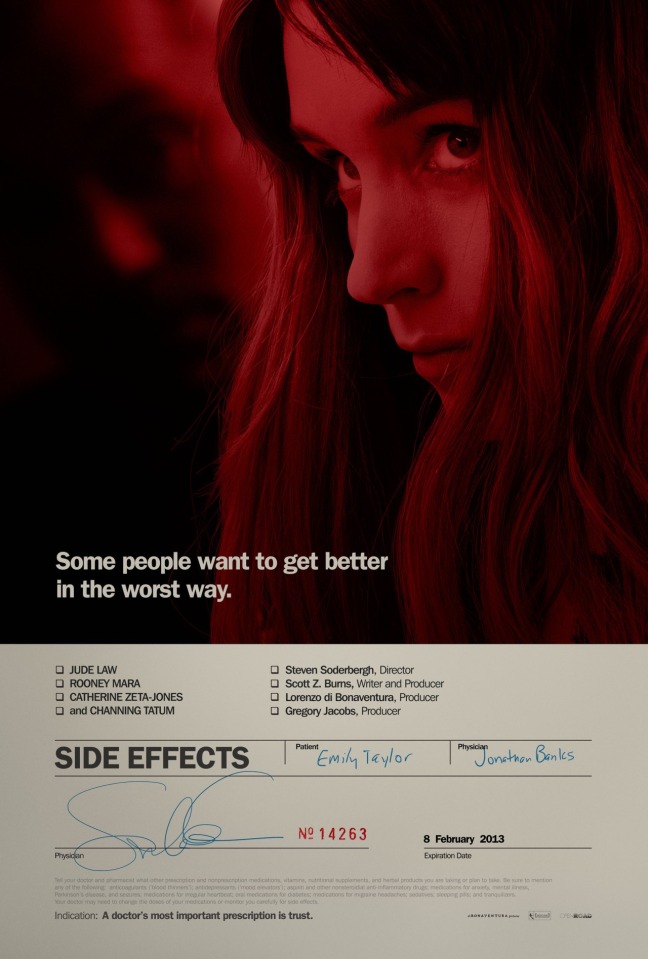
Now covered by Obamacare.
From the very first shot, there’s something eerily off about “Side Effects.” With a music-box feel to the score as the camera swoops slowly toward an apartment window, you’re set on edge by how normal it all seems — until the film moves inside the apartment, where there’s blood on the floor and footsteps leading away.
Cut to three months before: Emily Taylor (Rooney Mara) happily greets her husband Martin (Channing Tatum) on the day he’s released from prison, where he served four years for insider trading. But soon Emily begins showing signs of depression and anxiety, and attempts to commit suicide by driving her car into a wall.
At the hospital, she’s treated in the emergency room by Dr. Jonathan Banks (Jude Law), a distinguished young psychiatrist making a name for himself in New York City. He agrees not to admit her if she schedules regular appointments with him and starts taking medication. But soon the side effects of the pills cause everyone’s lives to spiral out of control.
Thrillers like “Side Effects” are tricky to get right. Twists and turns are standard practice in the genre, but a thriller is only as good as its final (metaphorical) punch — anything less than just the right balance, and the whole film feels like a huge letdown.
Well, this movie doesn’t quite get it right. After the movie has returned to the bloody attack in the apartment, “Side Effects” loses a bit of its momentum and never gets it back. And once the final act has untangled itself, it’s disappointing to see how the dust settles.
But while the ending may not drive this film home, the strong technical execution lets “Side Effects” land on its feet. Cinematography is essential to the plot-convolution and character-building, commanding both the anxiety of the actors and the escalating drama. The creative use of focus and depth of field only heightens the ever-building tension of the movie.
“Side Effects” wouldn’t be half as convincing if it weren’t for great performances from the cast, notably from Rooney, whose mesmerizing style intensifies Emily’s depression and drug-induced haze, giving the role some dimensional credibility. Her depth is offset by Law’s superficiality as Dr. Banks; his well-meaning but pill-pushing approach to medicine is a key element to both the plot and the subtext.
Director Steven Soderbergh’s cinematic skill turns an otherwise uninspired script into something quite intriguing. Even in the moments when it drags, the film has an element of unpredictability to hold the audience’s attention. It’s only once the credits roll that it becomes clear it didn’t deliver everything it promised.
The verdict: Though nothing to go crazy over, “Side Effects” is still a sleek and stylish thriller.
